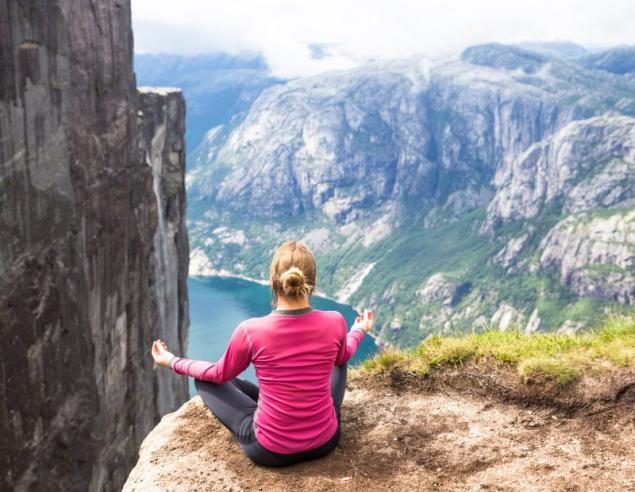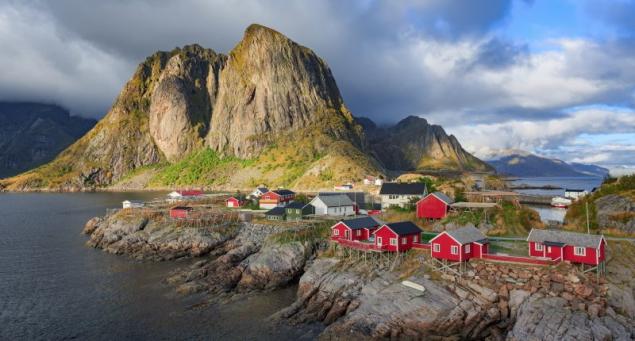169
What you need to know about life in Norway
Norway is consistently named among the most beautiful, rich and, most importantly, happy countries in the world. There are high prices for goods, services and food, but locals manage to work less than other Europeans and still find the money to maintain a high standard of living. They also manage to be happy. What's the secret?
And today's edition. "Site" try to find out Pros and cons of living in NorwayWe will also share the interesting features of the life of this country that surprised us the most. Perhaps the Norwegians can learn something?

Living in Norway
Of course, there are many subjective disadvantages in this country, ranging from unusual weather to the slow work of any state services, medical institutions, police, courts.
However, those who live in Norway not the first year, get used to the inconvenience, and over time even see in them the advantages. For example, at first many people resent the high taxes in the country, but it is enough to see how wisely this money is spent to all claims disappear.

Highly standard of living in NorwayA sufficient amount of time for themselves and loved ones, a minimum of stress and the opportunity to spend a lot of time in nature, as well as protection from the state and the availability of prospects allow residents of this Scandinavian country not only to look confidently into the future, but also to enjoy the present day. Is there anything else you need for happiness?
And today's edition. "Site" try to find out Pros and cons of living in NorwayWe will also share the interesting features of the life of this country that surprised us the most. Perhaps the Norwegians can learn something?

Living in Norway
- Locals
People here are very reserved and even cold. They are in no hurry to express feelings and rarely share experiences even with a loved one. Norwegians rarely complain about life and prefer to solve problems rather than discuss them. Their slowness is evident in all matters.
Personal space is very valuable here, and it is normal for a local resident to take 2 seats in public transport at once, sit in headphones and think about something of his own. If the cabin is full of seats, and you sit down with such a loner, he will immediately think you're an oddball. It is normal to stand in the aisle, but not sit next to anyone.
Even in the circle of loved ones, it is customary to be restrained in expressing emotions: slapping a friend on the back is a universal gesture that can both emphasize your location and show sympathy. Surprisingly, this coldness of Norwegians is combined with a high level of trust even in strangers.
- Medicine.
It's expensive. About a third of Norwegians refuse to go to the dentist because of the high cost. Therefore, before traveling to Norway, it is better to go to the dentist to be sure of the health of your teeth. An ambulance needs a very, very good reason. Even if something hurts very much, then you can make an appointment with a doctor only in a week or even two. At the same time, you can only buy painkillers in a pharmacy, but you will not be able to buy the necessary drugs to self-medicate. Everything is strictly prescription.
- Money.
Like I said, I don’t like working in Norway. No more than 7-7.5 hours a day and no more than 37.5 hours a week is what a local resident can still agree to. But any processing is paid very generously. In addition to expensive medicine, food is also expensive, and therefore Norwegians also have to save money. And the savings look peculiar: a person can go to neighboring Sweden only to buy a couple of bottles of wine, which there are a couple of euros cheaper than in a store nearby.
- Ecology
Norwegians save on food and hand over plastic bottles, for which they receive a discount on further purchases in supermarkets. Although the latter speaks not so much about the desire to save, but about a conscious attitude to the world, because the locals are very worried about what country they will leave to their descendants. That's why the streets are clear. At full work sorting garbage, which can not but admire.
- Children
Women here plan pregnancy so that the child was born before September 1. All to get a place in kindergarten. Moreover, with the adaptation of the child do very carefully: at first, mom and dad bring the baby only for an hour, then for two, gradually increasing this time to a full day. As a result, the child receives a minimum of stress and does not worry that the parents are absent. In terms of health, the child does not shake here, as we do. Walking in cold weather? Easy. So the child will only be tempered and will not get sick afterwards. Seeing children jump on puddles is within normal limits. The main thing is that the child has fun.
And during midday sleep, a child in a wheelchair can even be in the fresh air at sub-zero temperature. It's shocking to our moms, but Norwegian parents find it helpful. The main thing is to wrap the baby better.
Of course, there are many subjective disadvantages in this country, ranging from unusual weather to the slow work of any state services, medical institutions, police, courts.
However, those who live in Norway not the first year, get used to the inconvenience, and over time even see in them the advantages. For example, at first many people resent the high taxes in the country, but it is enough to see how wisely this money is spent to all claims disappear.

Highly standard of living in NorwayA sufficient amount of time for themselves and loved ones, a minimum of stress and the opportunity to spend a lot of time in nature, as well as protection from the state and the availability of prospects allow residents of this Scandinavian country not only to look confidently into the future, but also to enjoy the present day. Is there anything else you need for happiness?





























